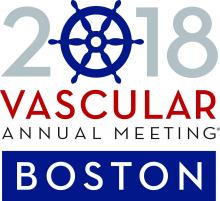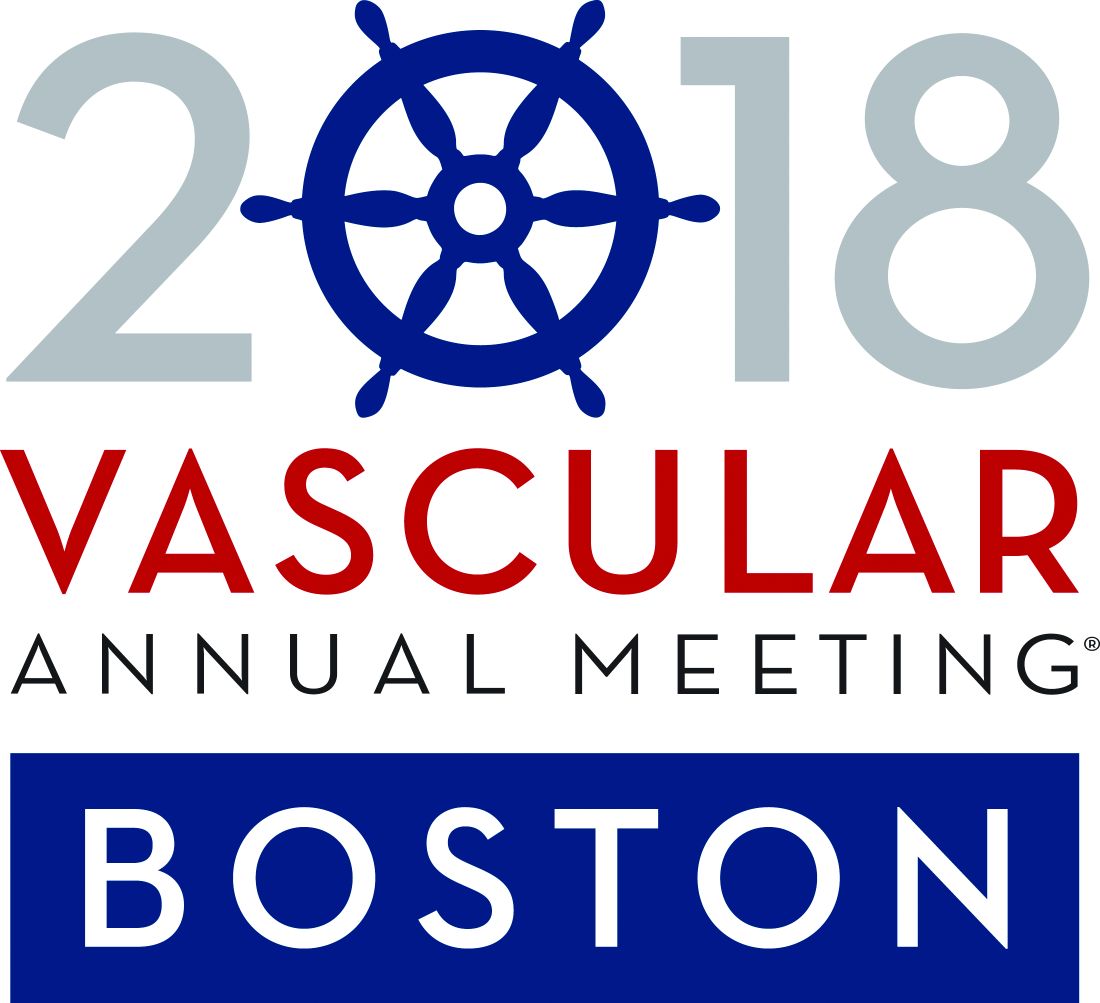User login
The team approach has changed the entire field of medicine in the past 10-20 years and, in fact, is critical to optimal patient outcomes. That’s according to Anil Hingorani, MD, who will co-moderate a special forum Friday, “Improving Clinical Metrics With the Utilization of Advanced Practice Providers.”
It will be held from 1:30 to 3 p.m. in Ballroom A/B.
The team approach is front and center at this year’s Vascular Annual Meeting, which carries the theme: “Home of the Vascular Team – Partners in Patient Care.”
“Our vascular disease patients can be quite complex,” said Dr. Hingorani. “We will highlight that to take care of these complexities we need a team approach, and our team members can help tremendously.” This is true across the setting spectrum, be it rural, urban, suburban.
“Some NPs and PAs run our service. They help coordinate pre-op evaluations, post-op management, take care of research protocols, billing, and other office responsibilities,” he said.
He pointed out he is not a specialist in diabetes, but that his NP has a special interest and passion for the topic. The work she does for their diabetic patients “helps MY patients and helps MY procedures have better outcomes.”
PAs and NPs also help run research projects and are instrumental in working with fellows rotating through. With their work in what Dr. Hingorani referred to as the “three pillars” – clinical work, teaching, and research – they are tremendously important to the vascular team.
Advanced care providers also help improve outcomes, he said, when pay for performance and quantitating outcomes is becoming a standard part of health care. Admissions, discharges, surgical site infections, diabetes, follow-up all are important for patient care, and tracking all the details is vital to outcomes. It will be addressed in the forum, Dr. Hingorani said.
“Medicine is a specialty that hasn’t really caught on to MACRA, MIPS, and what pay for performance really entails,” he said. “Many are still figuring out, ‘What changes do I need to make to make this work for my patients and me? Where does my practice fit in?’ We’re going to have to keep working on that.”
Speakers will be primarily nurse practitioners and physician assistants. “We didn’t want surgeons telling PAs and NPs what they should be doing. It needs to be the PAs and NPs doing the speaking, focusing on issues important to them.”
Dr. Hingorani believes that the Vascular Annual Meeting is the first to stress the team approach theme. “I think it’s an important step and others will follow suit,” he said. “These ideas are resonating. They’re important and will be the way forward.
“I think we’ll be breaking new ground and will ripple across the societies.”
Besides a panel discussion at the end, forum topics include:
- Improving Metrics in Clinical Practice: The Value of APPs to a Vascular Practice
- There’s an APP for That: Workforce and Community Practice Experience
- National and International Trends in the Use of APPs, PAs in Surgery and Outcome Data
- Improving Metrics via Team-Based Care: The Wake Forest Baptist Health Experience
- Influence of APPs - MIPS and “Throughput” of Patients, Value/Quality/Financial Benefit and APPs
- Funny You Should Ask: What Advanced Practice Providers Bring to the Table
- How Advanced Practice Clinicians Can Add Value to Your Practice
- Driving Outcomes: University of Maryland Advanced Practice Providers Target Preventable Complications, Length of Stay, and Readmissions Univers LT Std
The team approach has changed the entire field of medicine in the past 10-20 years and, in fact, is critical to optimal patient outcomes. That’s according to Anil Hingorani, MD, who will co-moderate a special forum Friday, “Improving Clinical Metrics With the Utilization of Advanced Practice Providers.”
It will be held from 1:30 to 3 p.m. in Ballroom A/B.
The team approach is front and center at this year’s Vascular Annual Meeting, which carries the theme: “Home of the Vascular Team – Partners in Patient Care.”
“Our vascular disease patients can be quite complex,” said Dr. Hingorani. “We will highlight that to take care of these complexities we need a team approach, and our team members can help tremendously.” This is true across the setting spectrum, be it rural, urban, suburban.
“Some NPs and PAs run our service. They help coordinate pre-op evaluations, post-op management, take care of research protocols, billing, and other office responsibilities,” he said.
He pointed out he is not a specialist in diabetes, but that his NP has a special interest and passion for the topic. The work she does for their diabetic patients “helps MY patients and helps MY procedures have better outcomes.”
PAs and NPs also help run research projects and are instrumental in working with fellows rotating through. With their work in what Dr. Hingorani referred to as the “three pillars” – clinical work, teaching, and research – they are tremendously important to the vascular team.
Advanced care providers also help improve outcomes, he said, when pay for performance and quantitating outcomes is becoming a standard part of health care. Admissions, discharges, surgical site infections, diabetes, follow-up all are important for patient care, and tracking all the details is vital to outcomes. It will be addressed in the forum, Dr. Hingorani said.
“Medicine is a specialty that hasn’t really caught on to MACRA, MIPS, and what pay for performance really entails,” he said. “Many are still figuring out, ‘What changes do I need to make to make this work for my patients and me? Where does my practice fit in?’ We’re going to have to keep working on that.”
Speakers will be primarily nurse practitioners and physician assistants. “We didn’t want surgeons telling PAs and NPs what they should be doing. It needs to be the PAs and NPs doing the speaking, focusing on issues important to them.”
Dr. Hingorani believes that the Vascular Annual Meeting is the first to stress the team approach theme. “I think it’s an important step and others will follow suit,” he said. “These ideas are resonating. They’re important and will be the way forward.
“I think we’ll be breaking new ground and will ripple across the societies.”
Besides a panel discussion at the end, forum topics include:
- Improving Metrics in Clinical Practice: The Value of APPs to a Vascular Practice
- There’s an APP for That: Workforce and Community Practice Experience
- National and International Trends in the Use of APPs, PAs in Surgery and Outcome Data
- Improving Metrics via Team-Based Care: The Wake Forest Baptist Health Experience
- Influence of APPs - MIPS and “Throughput” of Patients, Value/Quality/Financial Benefit and APPs
- Funny You Should Ask: What Advanced Practice Providers Bring to the Table
- How Advanced Practice Clinicians Can Add Value to Your Practice
- Driving Outcomes: University of Maryland Advanced Practice Providers Target Preventable Complications, Length of Stay, and Readmissions Univers LT Std
The team approach has changed the entire field of medicine in the past 10-20 years and, in fact, is critical to optimal patient outcomes. That’s according to Anil Hingorani, MD, who will co-moderate a special forum Friday, “Improving Clinical Metrics With the Utilization of Advanced Practice Providers.”
It will be held from 1:30 to 3 p.m. in Ballroom A/B.
The team approach is front and center at this year’s Vascular Annual Meeting, which carries the theme: “Home of the Vascular Team – Partners in Patient Care.”
“Our vascular disease patients can be quite complex,” said Dr. Hingorani. “We will highlight that to take care of these complexities we need a team approach, and our team members can help tremendously.” This is true across the setting spectrum, be it rural, urban, suburban.
“Some NPs and PAs run our service. They help coordinate pre-op evaluations, post-op management, take care of research protocols, billing, and other office responsibilities,” he said.
He pointed out he is not a specialist in diabetes, but that his NP has a special interest and passion for the topic. The work she does for their diabetic patients “helps MY patients and helps MY procedures have better outcomes.”
PAs and NPs also help run research projects and are instrumental in working with fellows rotating through. With their work in what Dr. Hingorani referred to as the “three pillars” – clinical work, teaching, and research – they are tremendously important to the vascular team.
Advanced care providers also help improve outcomes, he said, when pay for performance and quantitating outcomes is becoming a standard part of health care. Admissions, discharges, surgical site infections, diabetes, follow-up all are important for patient care, and tracking all the details is vital to outcomes. It will be addressed in the forum, Dr. Hingorani said.
“Medicine is a specialty that hasn’t really caught on to MACRA, MIPS, and what pay for performance really entails,” he said. “Many are still figuring out, ‘What changes do I need to make to make this work for my patients and me? Where does my practice fit in?’ We’re going to have to keep working on that.”
Speakers will be primarily nurse practitioners and physician assistants. “We didn’t want surgeons telling PAs and NPs what they should be doing. It needs to be the PAs and NPs doing the speaking, focusing on issues important to them.”
Dr. Hingorani believes that the Vascular Annual Meeting is the first to stress the team approach theme. “I think it’s an important step and others will follow suit,” he said. “These ideas are resonating. They’re important and will be the way forward.
“I think we’ll be breaking new ground and will ripple across the societies.”
Besides a panel discussion at the end, forum topics include:
- Improving Metrics in Clinical Practice: The Value of APPs to a Vascular Practice
- There’s an APP for That: Workforce and Community Practice Experience
- National and International Trends in the Use of APPs, PAs in Surgery and Outcome Data
- Improving Metrics via Team-Based Care: The Wake Forest Baptist Health Experience
- Influence of APPs - MIPS and “Throughput” of Patients, Value/Quality/Financial Benefit and APPs
- Funny You Should Ask: What Advanced Practice Providers Bring to the Table
- How Advanced Practice Clinicians Can Add Value to Your Practice
- Driving Outcomes: University of Maryland Advanced Practice Providers Target Preventable Complications, Length of Stay, and Readmissions Univers LT Std

